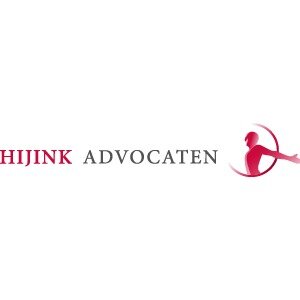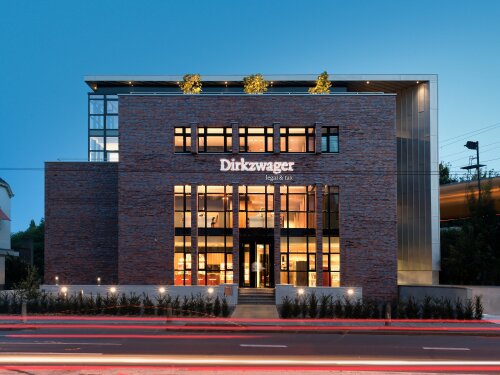Best Public-Private Partnerships (PPP) Lawyers in Arnhem
Share your needs with us, get contacted by law firms.
Free. Takes 2 min.
List of the best lawyers in Arnhem, Netherlands
About Public-Private Partnerships (PPP) Law in Arnhem, Netherlands
Public-Private Partnerships (PPP) involve collaboration between government entities and private sector companies for the development, financing, operation, or maintenance of public infrastructure or services. In Arnhem, Netherlands, PPP projects help deliver a range of public utilities and infrastructure, such as roads, bridges, schools, public transport, and renewable energy projects. These partnerships allow municipalities like Arnhem to leverage private sector investment and expertise while ensuring public interests are protected.
PPP contracts in Arnhem are governed by a combination of Dutch national law, European Union directives, and local regulations. Projects often require careful legal structuring to balance risks, allocate responsibilities, and ensure compliance with public procurement policies.
Why You May Need a Lawyer
The complexities of PPP arrangements can give rise to various legal challenges and considerations. You may need a lawyer for several reasons, including:
- Drafting, reviewing, or negotiating PPP contracts and consortium agreements
- Navigating public procurement or tender procedures
- Addressing disputes or claims arising during the course of the partnership
- Understanding regulatory compliance and state aid rules
- Identifying and mitigating project risks
- Advising on financing structures and investment requirements
- Ensuring proper allocation of liabilities between public and private parties
Legal guidance is especially important for companies and municipalities that are new to PPP, as the regulatory landscape can be intricate and the stakes are often significant for all parties.
Local Laws Overview
Several legal frameworks govern PPP in Arnhem:
- Public Procurement Law - Dutch law implements EU procurement directives, requiring open, transparent, and non-discriminatory tender procedures.
- Municipal Law - The Municipality Act gives Arnhem municipal authorities a legal basis for entering into PPPs, subject to council approval and oversight.
- Contract Law - Standard Dutch civil law principles apply to PPP contracts, covering issues such as liability, performance, and termination.
- State Aid Rules - EU state aid rules may apply if public funding offers unfair advantages to the private partner.
- Environmental and Planning Law - Compliance with local zoning, environmental permits, and sustainability standards is essential.
Legal processes are often overseen or assisted by national agencies such as the Netherlands Enterprise Agency (RVO) and must follow transparency and public interest standards.
Frequently Asked Questions
What is a Public-Private Partnership (PPP)?
A PPP is a cooperative arrangement between a government entity and a private sector company to deliver public infrastructure or services, typically financed, built, and operated partly or fully by the private partner.
What types of projects qualify as PPPs in Arnhem?
Typical PPP projects include transport infrastructure, public facilities, urban development, energy projects, and digital infrastructure.
Do PPPs need to go through a public tender process?
Yes, most PPP projects in Arnhem must follow public procurement regulations, which require open and competitive tender procedures.
How are risks allocated in a PPP agreement?
Risks in PPP contracts are typically distributed based on which party is best able to manage them, such as construction risk, financing risk, and operational risk.
Can SMEs participate in PPP projects?
Yes, small and medium-sized enterprises can participate in PPPs, often as part of a consortium with larger partners, provided they meet eligibility criteria.
What are typical contract durations for PPPs?
PPP contracts often have long terms, ranging from 10 to 30 years, depending on project type and scope.
Are there opportunities for innovation in PPP projects?
Yes, PPPs can foster innovation through flexible project specifications and performance-based contracting, allowing private expertise to improve delivery.
What happens if there is a dispute between the public and private partner?
Disputes may be resolved through negotiation, mediation, arbitration, or litigation, depending on what is specified in the contract.
What role do citizens play in PPP projects?
Public participation and transparency are important. Local authorities may hold consultations or provide opportunities for feedback before project approval.
How can I find current PPP opportunities in Arnhem?
PPP opportunities are usually announced on government tender platforms, the Arnhem municipal website, and through industry bulletins.
Additional Resources
For further support and information on PPPs in Arnhem, consider these resources:
- Municipality of Arnhem - Department of Urban Development and Infrastructure
- Netherlands Enterprise Agency (RVO) - National support for PPP projects
- Dutch Ministry of Infrastructure and Water Management
- PPS Netwerk Nederland - Dutch PPP network offering news and best-practice guides
- Chamber of Commerce (Kamer van Koophandel) - Project registration and business support
- Legal Aid Desk or local law firms with PPP expertise in the Arnhem region
Next Steps
If you need legal assistance with a Public-Private Partnership in Arnhem, start by gathering all project documentation, including any tender notices, draft contracts, and correspondence. Identify your objectives and concerns, then reach out to a qualified lawyer or law firm experienced in PPP law and municipal projects. You may also contact the municipality’s legal department for initial guidance. Arrange a consultation to discuss your needs, clarify legal fees, and establish how the lawyer can assist you throughout the PPP process. Early legal advice helps ensure your interests are protected and increases the likelihood of a successful collaboration.
Lawzana helps you find the best lawyers and law firms in Arnhem through a curated and pre-screened list of qualified legal professionals. Our platform offers rankings and detailed profiles of attorneys and law firms, allowing you to compare based on practice areas, including Public-Private Partnerships (PPP), experience, and client feedback.
Each profile includes a description of the firm's areas of practice, client reviews, team members and partners, year of establishment, spoken languages, office locations, contact information, social media presence, and any published articles or resources. Most firms on our platform speak English and are experienced in both local and international legal matters.
Get a quote from top-rated law firms in Arnhem, Netherlands — quickly, securely, and without unnecessary hassle.
Disclaimer:
The information provided on this page is for general informational purposes only and does not constitute legal advice. While we strive to ensure the accuracy and relevance of the content, legal information may change over time, and interpretations of the law can vary. You should always consult with a qualified legal professional for advice specific to your situation.
We disclaim all liability for actions taken or not taken based on the content of this page. If you believe any information is incorrect or outdated, please contact us, and we will review and update it where appropriate.









